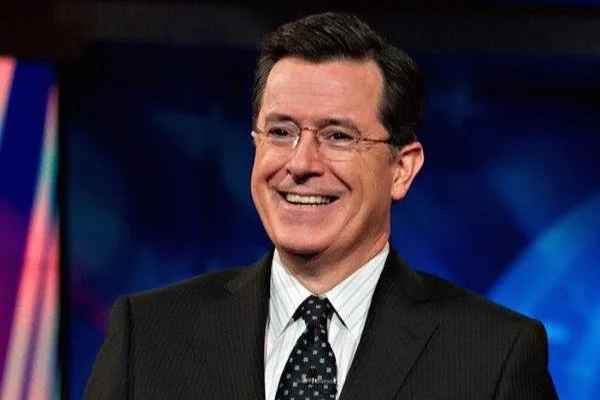The End of an Era or a New Beginning? Stephen Colbert’s Cancellation and the Future of Free Press
Stephen Colbert in 2011. U.S. Army photo by Staff Sgt. Teddy Wade. Public Domain.
The Economics Behind the Exit
In a surprising move, CBS announced the cancellation of The Late Show with Stephen Colbert, citing financial reasons. The long-running late-night staple, known for its satirical wit and sharp political commentary, has served as both entertainment and a vital outlet for critique in an increasingly divided media landscape.
Additionally, rumors have swirled around the decision being politically motivated. Just three days before he revealed the cancellation news, Colbert used his platform to sharply criticize Paramount for what he saw as capitulating to Trump, after CBS News settled a defamation lawsuit with the president for $16 million. Colbert described it as “a big fat bribe,” suggesting it was a tactic to pave the way for the Skydance merger. But as one screen goes dark, the question looms large: does the end of The Late Show signal the death of free press — or its rebirth?
Late-night television has long been a cultural mainstay, but the traditional format is showing its age. Ratings are down across the board, and streaming and digital platforms continue to siphon viewers away from network TV. CBS’s decision to cancel Colbert’s show is a reflection of this new reality: it’s not necessarily about content, but cost.
Colbert, with his formidable viewership and loyal fan base, isn’t fading because of irrelevance — he’s falling victim to an outdated business model. The networks simply can’t sustain the same production values in an era where audiences are increasingly fragmented across digital channels.
Source: Squarespace/ Unsplash
What’s Next?
Rather than mourning the loss of Colbert’s network slot, many see this as a natural evolution. If Colbert follows in the footsteps of Conan O’Brien — who has successfully transitioned to the podcast world with Conan O’Brien Needs a Friend — the comedian may find himself with more reach and fewer limitations.
Podcasts offer creators the kind of editorial freedom traditional networks can’t match. Free from FCC regulations and the expectations of corporate advertisers, a Colbert podcast could be sharper, more honest, and even more politically charged than what viewers were used to on CBS. In a medium where authenticity is prized, Colbert’s voice could thrive like never before.
Rumors have also begun swirling that Stephen Colbert may be eyeing a future presidential run, despite no formal announcement. First floated during his satirical 2008 campaign stunt in South Carolina, the speculation gained new life when fans and commentators again started half-joking about “Colbert 2028” following the news of The Late Show ending in 2026. While today’s buzz comes mostly from tongue-in-cheek chatter rather than concrete plans, it reflects a growing fascination with the idea that Colbert, known for blending comedy and political commentary, might seriously consider entering the political arena.
Source: Squarespace/ Unsplash
A New Chapter for Media
This shift also speaks to the broader decentralization of news and opinion. With YouTube commentators, independent journalists, and podcasters all claiming slices of the public’s attention, the concept of a centralized “free press” has fundamentally changed. It’s not that free press dies with Colbert — it’s that it no longer needs a traditional platform to survive.
In this new landscape, media is peer-to-peer, community-driven, and often more nimble than any network newsroom. Colbert stepping away from CBS could be less about losing a voice and more about liberating one.
The cancellation of The Late Show with Stephen Colbert is undoubtedly the end of an era, but it may also be the beginning of a more potent chapter. If Colbert embraces digital platforms, he could become a powerful example of how legacy media figures can adapt — and even thrive — in decentralized ecosystems.
The stage may be gone, but the mic is still on. And with more tools at his disposal and fewer corporate filters, Colbert’s best work may still be ahead of him.




